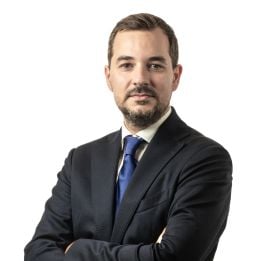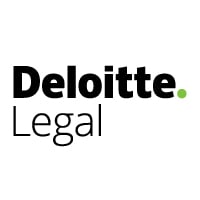

General counsel | Sonepar Italia



Emanuele Decataldo
General counsel | Sonepar Italia
Team size: 4
How do you approach managing legal aspects during periods of instability or crises, and how does your legal strategy align with the broader business strategy to ensure the organisation’s resilience?
During periods of instability or crisis, my approach as General Counsel is grounded in three pillars: governance, clarity of processes, and certainty.
Even when uncertainty prevails, I believe it is essential for the legal team to spread confidence and provide clear, actionable guidance. Business leaders and frontline teams must feel secure that they can continue operations as close to “business as usual” as possible or receive the necessary support to ensure business continuity in a safe and compliant way.
This means providing certainty where it is possible, adapting where it is necessary, and always aligning legal advice with the organisation’s strategic objectives. In my experience, during crises, functions often look to the legal department for assurance on how to move forward.
In challenging times, the legal function must act as both a stabilising force and a trusted partner, helping the organisation “navigate the storm” while maintaining direction, preserving trust with stakeholders, even in the most turbulent moments.
What are the major cases or transactions you have been involved in recently?
One of the most significant and innovative projects in which I’ve been involved is the legal structuring of a B2B marketplace platform designed specifically for the distribution sector. What made this initiative particularly unique was its ability to replicate the traditional purchasing experience typical of B2B channels, while simultaneously aligning with the risk-averse nature of digital platforms.
We developed a legal and contractual framework characterised by a delicate balance between commercial flexibility and legal robustness, involving complex negotiations with financial partners, regulatory compliance assessments, and the design of a multi-party contractual architecture.
The result is a pioneering digital ecosystem that empowers businesses to trade with the confidence and convenience of traditional relationships, but with the efficiency, scalability, and security of a modern e-commerce platform.
What emerging technologies do you see as having the most significant impact on the legal profession in the near future, and how do you stay updated on these developments?
When we talk about emerging technologies shaping the legal profession, artificial intelligence, automation, and data analytics are often at the center of the conversation. These tools are undeniably transformative, enabling greater efficiency, faster research, and improved risk management. However, I believe that in a future where technologies will be even more pervasive, the “human factor” will increasingly become crucial in the legal profession.
In fact, the most powerful “technology” remains human capability: empathy, critical thinking, and contextual understanding. The legal function is, at its core, about judgement and relationships. Technology can generate answers, but only people can ask the right questions, raise the right issues, interpret the context, and challenge potential “hallucinations” that automated systems sometimes produce.
For this reason, I focus on fostering a culture of curiosity and awareness within my team: awareness of oneself, of the broader context, and of how we operate within that context. This ensures that, rather than being overwhelmed by technological change, we use it to strengthen collaboration, improve decision-making, and enhance our contribution to the business, integrating new technologies responsibly.